Table of Contents
Introduction to Black Pepper
Black pepper (Piper nigrum) is one of the most widely used spices globally, derived from the dried berries of a flowering vine native to India. Contrary to common misconceptions, black pepper is not a chili pepper but a distinct spice with its own unique characteristics. It is not measured on the Scoville scale like chili peppers, but its pungency comes from piperine, a compound that creates a sharp, warming heat. This guide provides accurate information about black pepper's properties, culinary uses, and selection criteria.
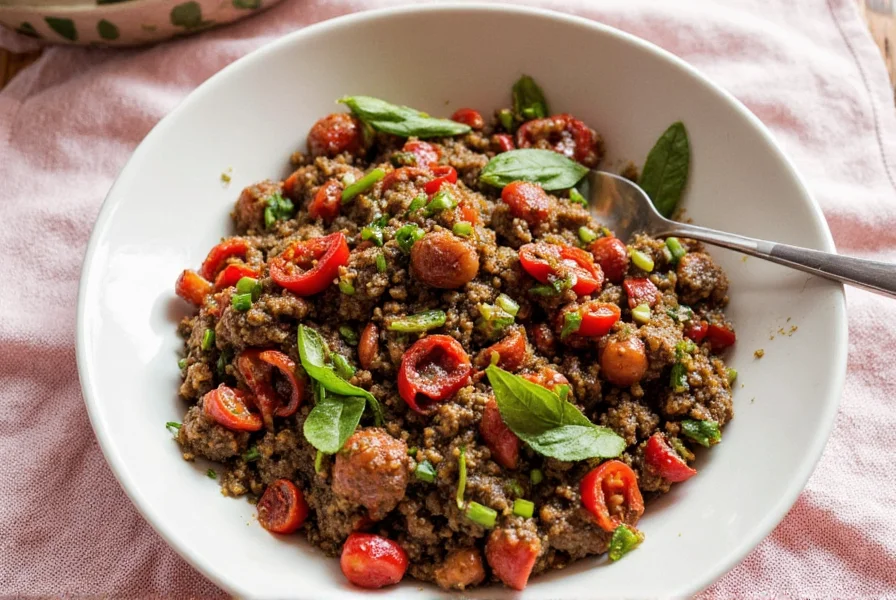
Black pepper has been traded for over 4,000 years and remains essential in cuisines worldwide. Its versatility makes it indispensable in both savory and sweet dishes, though it is often confused with chili peppers due to its "spicy" reputation. Understanding the fundamental differences between black pepper and chili peppers is crucial for proper culinary application.
Flavor Profile and Characteristics
Black pepper's flavor profile is complex, featuring pungent, sharp notes with subtle hints of wood, citrus, and earthiness. Unlike chili peppers which contain capsaicin (measured on Scoville scale), black pepper's heat comes from piperine, creating a different kind of warmth that enhances rather than overwhelms dishes.
| Type | Flavor Profile | Processing Method |
|---|---|---|
| Black Pepper | Pungent, sharp, with woody and citrus notes | Dried unripe berries |
| White Pepper | Milder, earthier, less complex | Ripe berries with outer layer removed |
| Green Pepper | Fresher, more herbal, less pungent | Unripe berries preserved in brine or freeze-dried |
| Red Pepper | Sweet, fruity, milder heat | Ripe berries dried |
Each type of peppercorn offers distinct characteristics for different culinary applications. Black pepper's complexity makes it ideal for seasoning meats, soups, and sauces, while white pepper is preferred in light-colored dishes like mashed potatoes or béchamel sauce.
Cultural Significance of Black Pepper
Known as "black gold" in ancient times, black pepper has shaped global trade routes and economies. Originating in Kerala, India, it was so valuable that it was used as currency in medieval Europe. The spice has been documented in ancient Egyptian tombs and was highly prized in Roman cuisine.
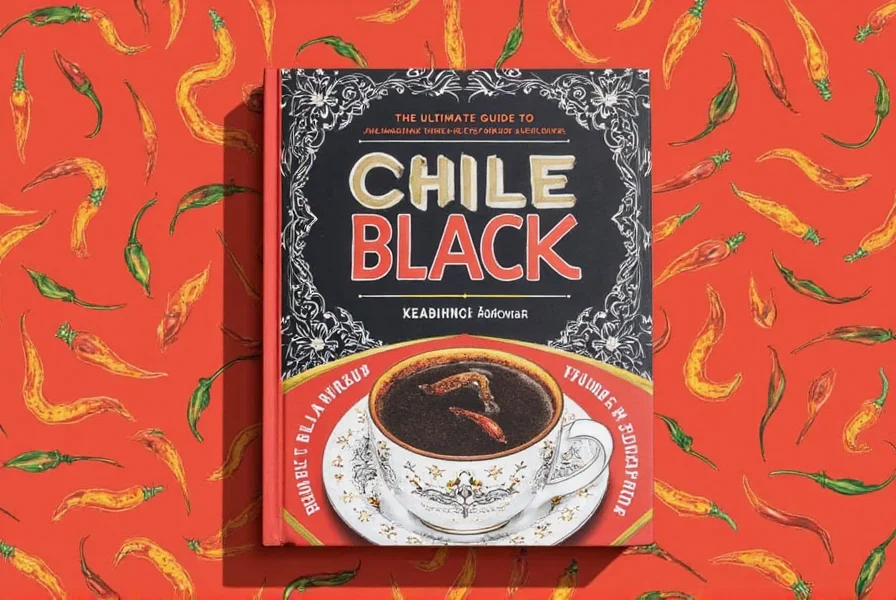
Today, black pepper remains integral to culinary traditions worldwide. In Indian cuisine, it's a key component of garam masala. In French cooking, it's essential for sauces like pepper steak. The spice's cultural significance extends beyond flavor—it represents history, trade, and culinary heritage across continents.
Cooking Tips with Black Pepper
Proper use of black pepper can elevate your dishes. Here are expert tips:
- Grind fresh: Whole peppercorns retain flavor longer than pre-ground. Grind just before use for maximum aroma and heat.
- Pair strategically: Black pepper complements proteins, tomatoes, cheese, and eggs. Avoid pairing with delicate seafood where its strong flavor might overpower.
- Heat control: Add pepper at the end of cooking for maximum flavor. High heat can make it bitter.
- Balance with salt: Pepper and salt work synergistically. Always season with both for optimal flavor development.
- Experiment with forms: Use whole peppercorns in stocks and brines, cracked pepper for rubs, and fine grind for sauces and dressings.
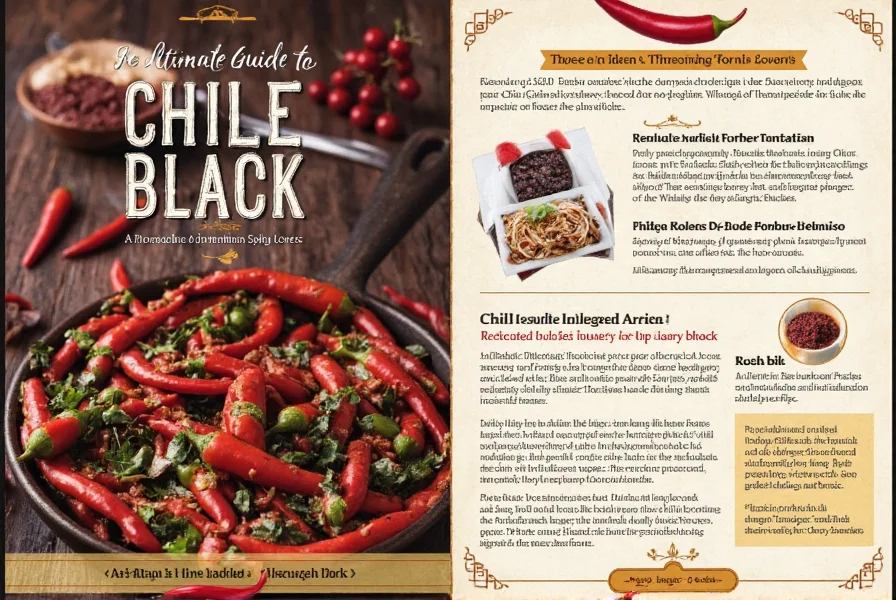
For a classic French dish like steak au poivre, coarsely grind black pepper and press it into the steak before searing. The pepper crust creates a delicious contrast with the tender meat.
Buying Guide for Black Pepper
Product 1: Whole Black Peppercorns
Features: Unprocessed, dried berries from mature Piper nigrum vines. Look for plump, uniform berries with deep color.
Advantages: Maximum freshness and flavor retention. Versatile for grinding to desired coarseness.
Use Cases: Ideal for gourmet cooking, homemade spice blends, and dishes requiring fresh pepper flavor.
Target Audience: Home cooks and professional chefs seeking premium quality.
Suitable Occasions: Everyday cooking, special occasions, and culinary experimentation.
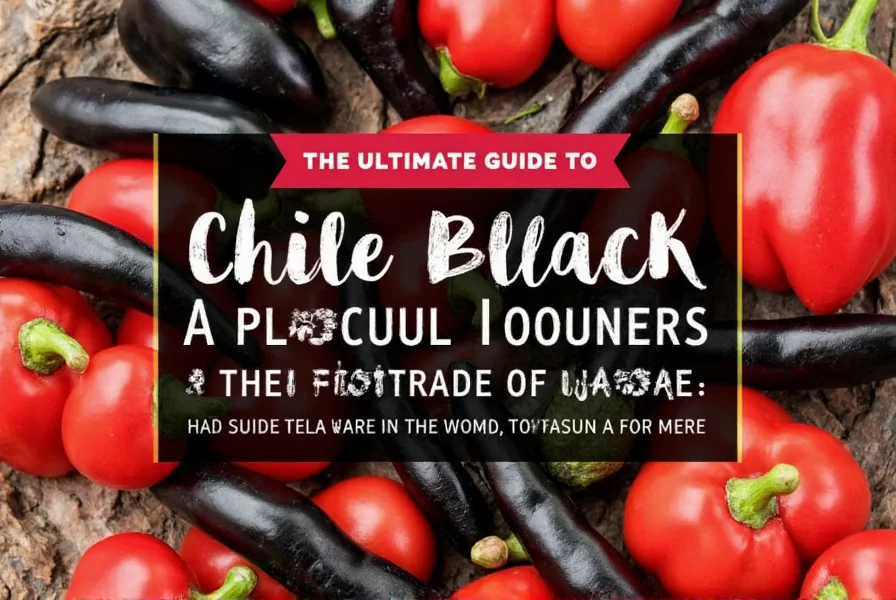
Product 2: Ground Black Pepper
Features: Pre-ground from high-quality peppercorns. Choose brands with airtight packaging to preserve freshness.
Advantages: Convenience and immediate use. Consistent texture for precise seasoning.
Use Cases: Quick seasoning for soups, salads, and dishes where fresh grinding isn't practical.
Target Audience: Busy cooks and those needing quick seasoning solutions.
Suitable Occasions: Everyday cooking, last-minute meal preparation, and casual dining.

Product 3: Specialty Black Pepper Varieties
Features: Includes Tellicherry, Malabar, or Kampot pepper, each with unique regional characteristics.
Advantages: Distinct flavor profiles for specific culinary applications. Higher quality and complexity.
Use Cases: Fine dining, specialty dishes, and when a particular pepper character is desired.
Target Audience: Culinary enthusiasts and professional chefs seeking premium ingredients.
Suitable Occasions: Gourmet cooking, restaurant-quality meals, and special culinary projects.

When purchasing black pepper, look for:
- Whole peppercorns with uniform size and deep brown color
- Airtight packaging to preserve volatile oils
- Clear origin information (Kampot pepper from Cambodia, Tellicherry from India)
- Harvest dates for freshness
Frequently Asked Questions
Is black pepper the same as chili pepper?
No, black pepper (Piper nigrum) and chili peppers (Capsicum species) are completely different plants. Black pepper comes from a vine and contains piperine for heat, while chili peppers contain capsaicin. Black pepper is not measured on the Scoville scale, and its heat profile is fundamentally different from chili peppers.
How should I store black pepper to maintain freshness?
Store whole peppercorns in an airtight container away from light, heat, and moisture. They can last up to 3-4 years when properly stored. Ground pepper should be used within 6 months for optimal flavor. Never store pepper in the refrigerator, as moisture can cause clumping and flavor loss.
Why does my black pepper taste bitter?
Bitterness usually occurs when pepper is exposed to high heat for too long. Piperine breaks down at high temperatures, creating bitter compounds. Always add pepper near the end of cooking. Using stale or low-quality pepper can also cause bitterness—freshly ground pepper from whole berries provides the best flavor.
Can I use black pepper in sweet dishes?
Yes, black pepper enhances sweet dishes beautifully. It pairs surprisingly well with chocolate, fruits like strawberries and peaches, and even in desserts like pepper-infused ice cream. The pungency creates complexity that balances sweetness. A small pinch in chocolate cake or berry compote can elevate the flavor profile significantly.
What's the difference between black, white, and green pepper?
All three come from the same plant but are processed differently. Black pepper is made from unripe berries dried whole. White pepper is made from ripe berries with the outer layer removed, resulting in milder, earthier flavor. Green pepper is made from unripe berries preserved in brine or freeze-dried, offering fresher, more herbal notes. Each type has distinct culinary applications based on their flavor profiles.
Is black pepper healthy?
Black pepper contains piperine, which has antioxidant properties and may enhance nutrient absorption (particularly curcumin from turmeric). However, it should be consumed in moderation as part of a balanced diet. While it's not a medicinal supplement, its culinary use contributes to overall dietary variety and flavor without added calories or sodium.
Conclusion
Black pepper is a fundamental spice with a rich history and versatile culinary applications. Understanding its unique characteristics—distinct from chili peppers—and proper usage techniques can transform your cooking. From its complex flavor profile to proper storage and selection, black pepper deserves respect as a culinary cornerstone rather than a generic "spice."
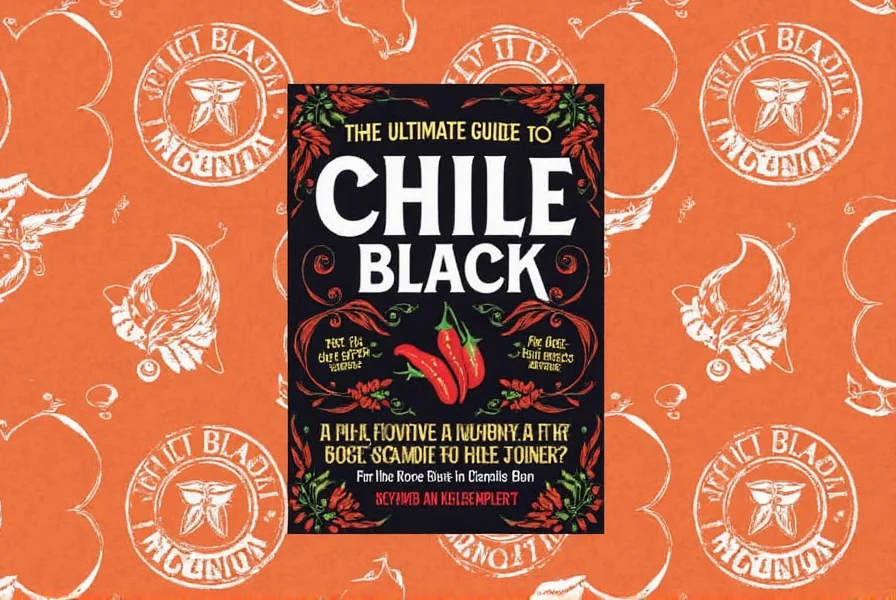
Whether you're a home cook or professional chef, mastering black pepper's nuances will elevate your dishes. Experiment with different varieties, proper grinding techniques, and strategic pairing to unlock its full potential in your kitchen. Remember: true flavor comes from understanding your ingredients, not just using them.











 浙公网安备
33010002000092号
浙公网安备
33010002000092号 浙B2-20120091-4
浙B2-20120091-4